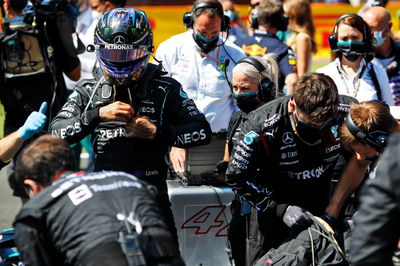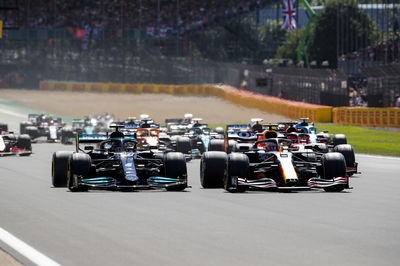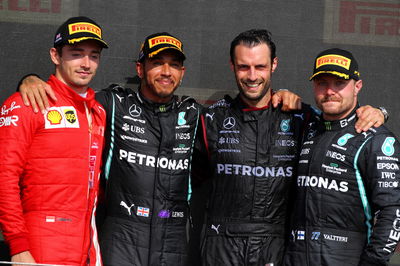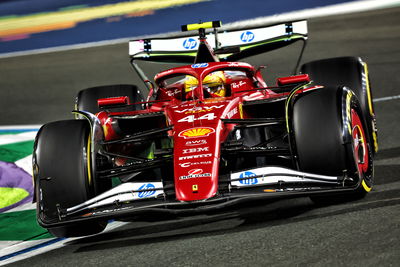Why FIA didn’t let consequence of Hamilton-Verstappen crash influence penalty

Lewis Hamilton was handed a 10-second time penalty for clashing with Max Verstappen while they battled for the lead on the opening lap of Sunday’s British Grand Prix.
But the seven-time world champion was still able to claim a controversial eighth British GP victory and reduce Verstappen’s championship lead from 33 points down to eight.
Masi stressed it has been a fundamental principle for a number of years - and was agreed on by team bosses - that outcomes of an incident should not influence the penalty handed out.
"I think one of the big parts that's been a mainstay for many, many years, and this came through discussions prior to my time between all of the teams, the FIA and F1, and the team principals were all quite adamant, is that you should not consider the consequences in an incident,” he said.
"So when they judge an incident they judge the incident itself, and the merits of the incident, not what happens afterwards as a consequence. And that's been something that the stewards have done for many years.
"And have been advised to do from top down. I'm talking team involvement, and so forth. So that's the way that the stewards judge it, because start taking consequences into account, there's so many variables, rather than judging the incident itself on its merits.”
Red Bull was left angered by the decision and felt the punishment handed out to Hamilton was not nearly sufficient enough, with Helmut Marko calling for a race ban, while Verstappen himself claimed it “doesn’t do justice” to the incident.
"I think if you look at it on that basis you'll never find a penalty that will address an imbalance like that,” Masi added.
"If you look at it in that particular circumstance, that is why going back a few years the teams, the team principals made a clear distinction that they didn't want consequences taken into account, they wanted it based on the incident itself.
"I completely understand that perspective and I think that is a general held view across all stewarding, to not look at consequences for that exact purpose.”

Masi does not feel the stewards should have to publicly explain their decisions in detail in a similar manner to football’s VAR system.
"I think that you've got a lot of TV analysts out there with a lot of very experienced former drivers out there that will put a perspective forward,” he said. “And the stewards look at absolutely everything that they've got available.
"And unlike a VAR process that is done and dusted within 30 seconds, sometimes maybe a minute maximum, the stewards are very much told that you take the time that you need to analyse any possible element of any incident that occurs.
"So I don't see it from that point of view, I think the stewards need to remain as an independent judiciary. And I don't think they should have any pressures, they should take their time to analyse everything based on its merits.”
Masi said there was “no frustration” at having to deal with constant lobbying from Red Bull and Mercedes during the red flag suspension as both teams tried to put forward their respective cases.
“Obviously, that’s part of what they do, it comes about in various waves depending on what it is,” he explained. “Everyone’s looking after their own little patch of turf, which you’d expect.
“From my perspective, I treat them all equally and try to balance out what we’ve got to do and set certain priorities within your own mind, what you’ve got before you, and you need to prioritise accordingly.
“There was a couple of times there, be it with Mercedes-Benz or with Red Bull at the time, where I said ‘just hang five, and I’ll get back to you’, which happened earlier, which you probably didn’t hear. You only heard the one that was broadcast.”












